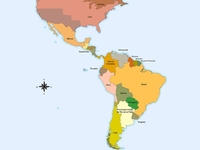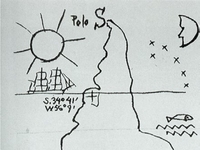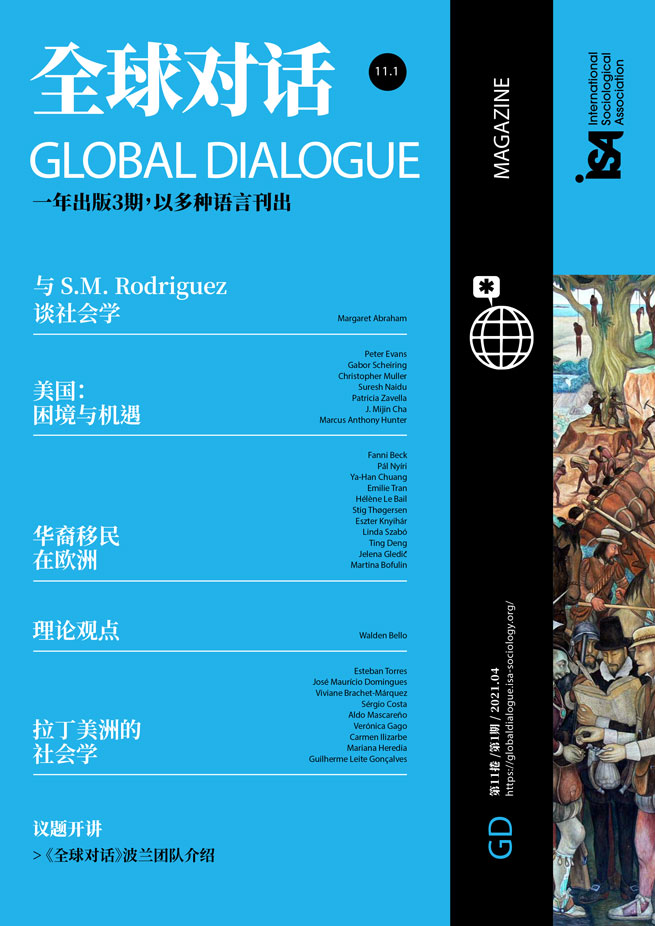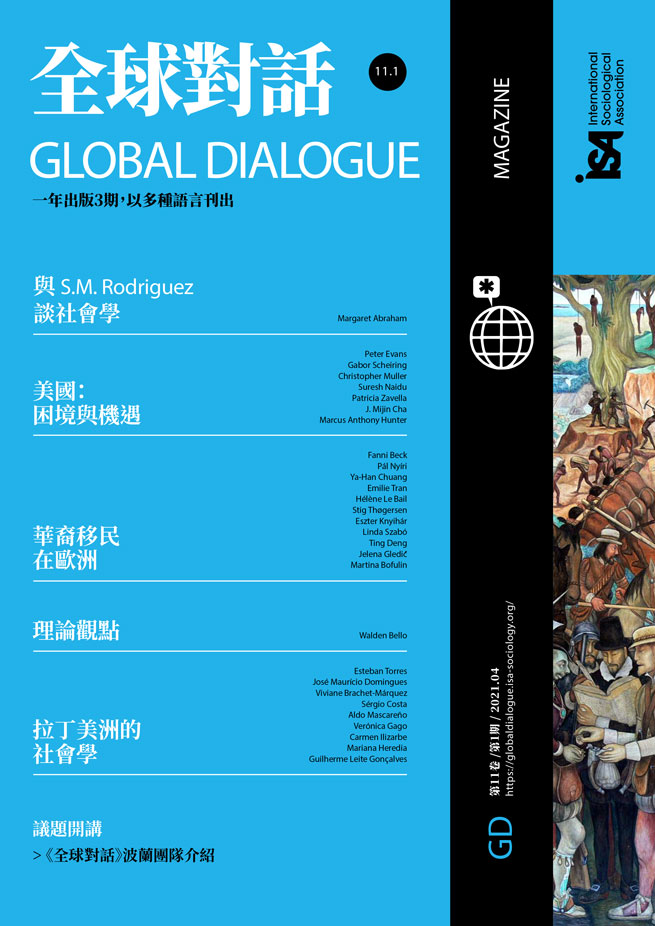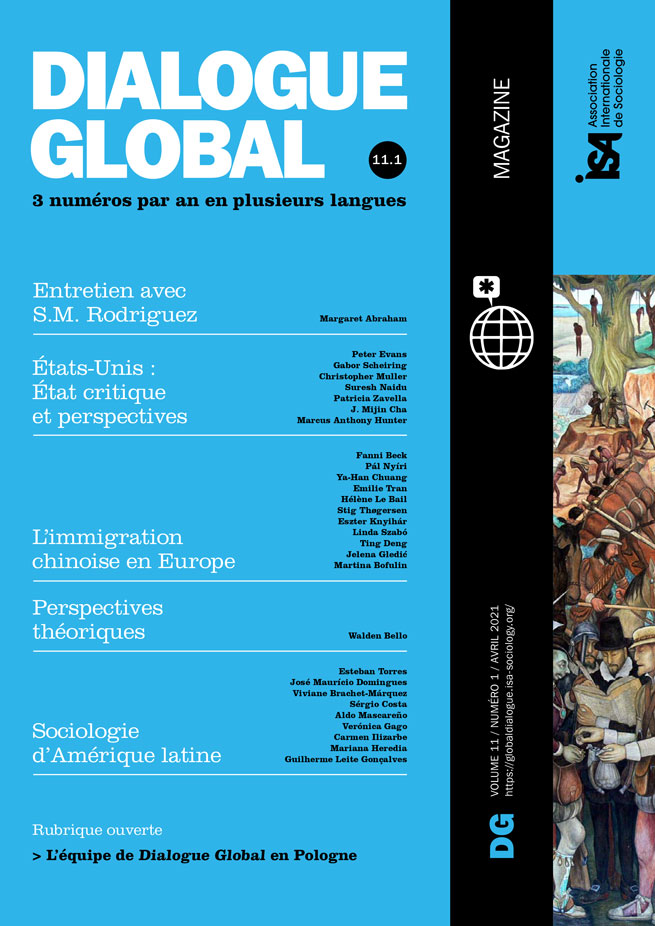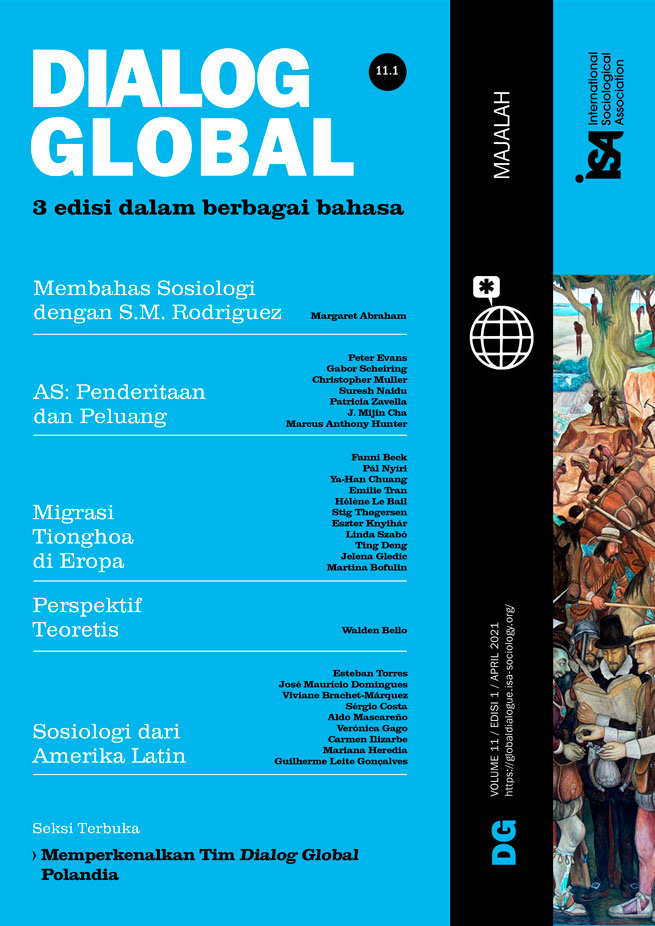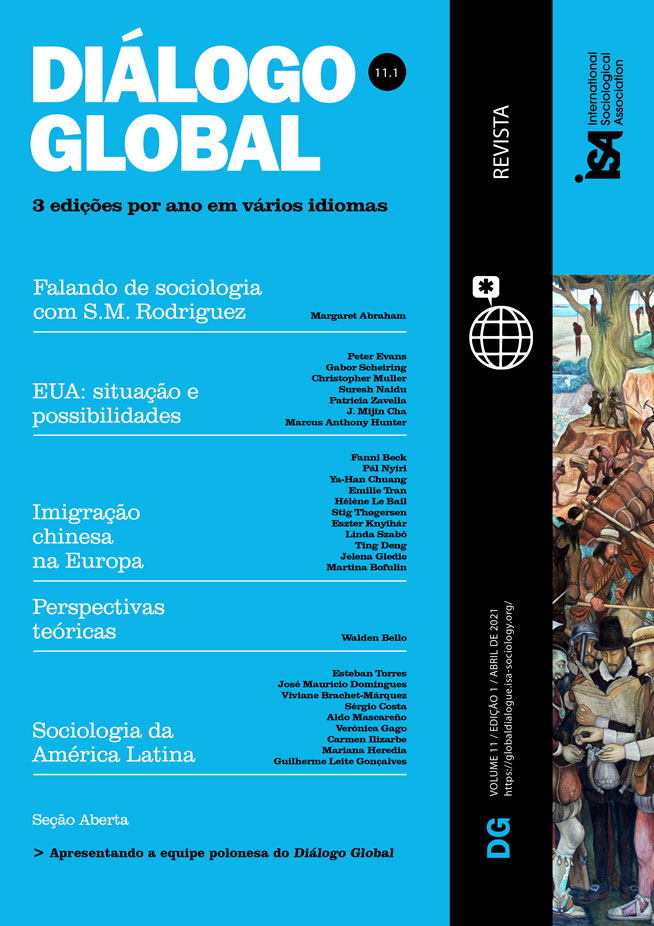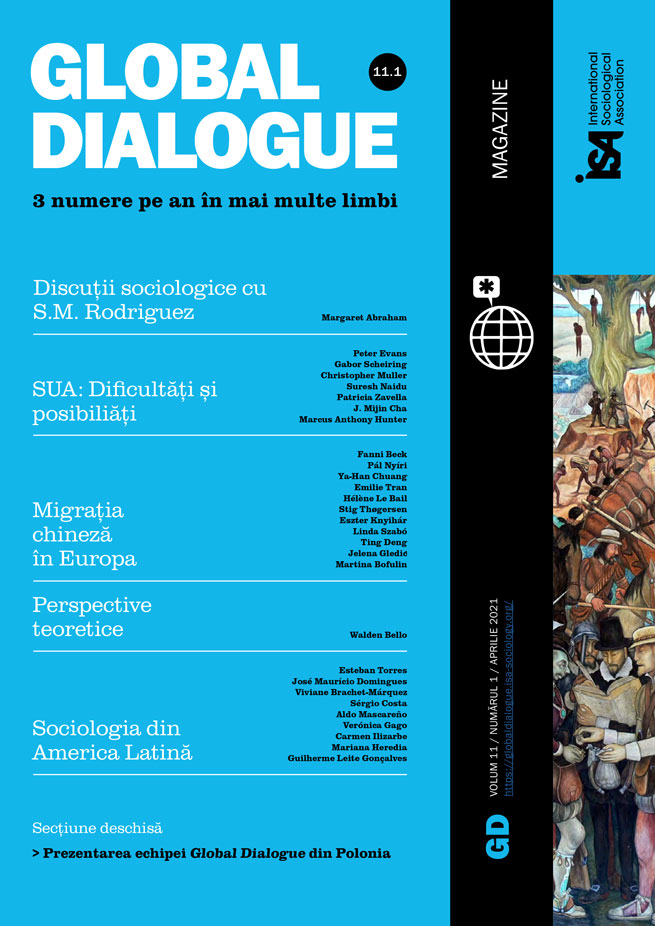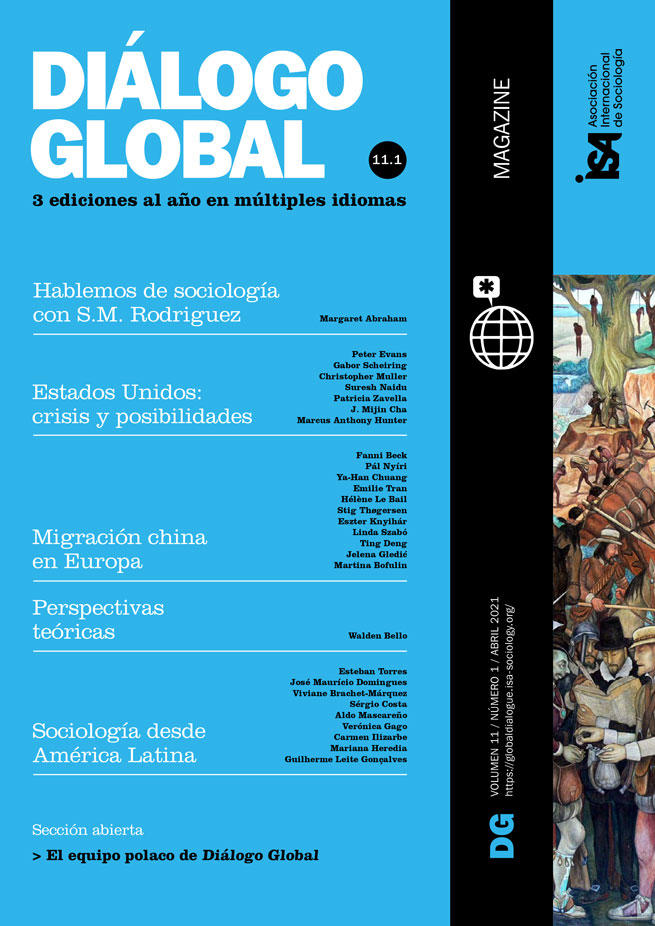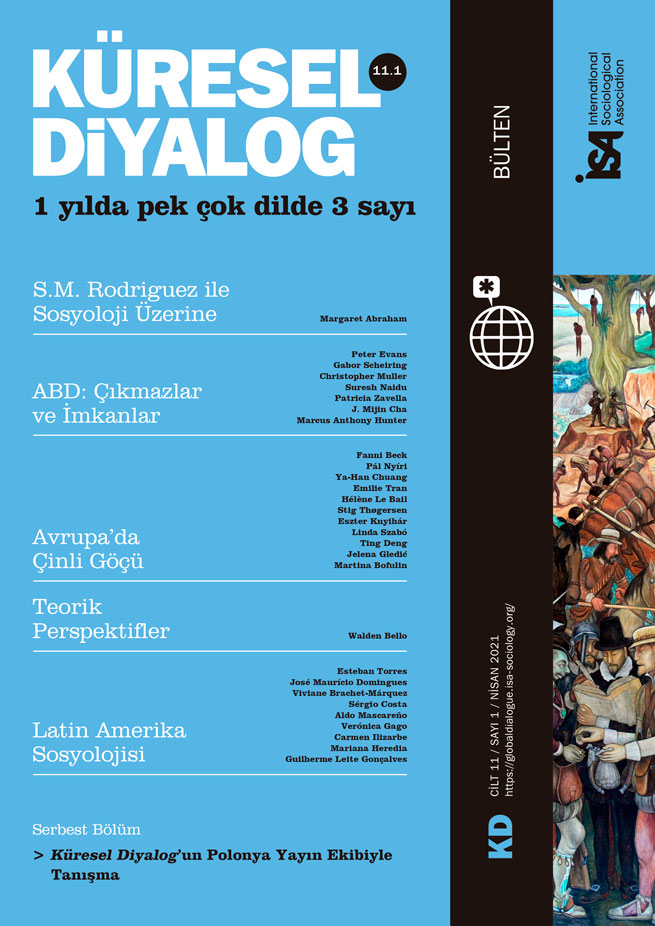In the last five years, my work has been focused on developing a systems theory of complex social crises. Either because the concept of crisis remained indissolubly linked to that of critique since the French Revolution, or because critical theory adopted the difference of crisis and critique as a unit of its theoretical and political practice, the truth is that systems theory systematically avoided the concept of crisis. Since Luhmann himself understood crisis as a negative self-description of modern society, until recent reflections on the surreal possibility of a critical systems theory, the mechanism of the crisis has been the hidden value from the relationship between system and environment. However, complex social crises are a signature of the twenty-first century.
The dark side of modern societies
In the last two decades, the dark side of modern society has shown itself with particular drama and in qualitatively different tones from previous decades. Events that we have traditionally called crises acquired unprecedented robustness, extension, and periodicity in social evolution. These are times in which we experience hypercomplex social crises that dramatically remind us that the institutions of modern society are overloaded by globally interconnected, multilayered claims and cannot restore disappointed expectations. It is not a mystery that global modernity confronts every corner of world society with experiences of disaffection and estrangement as people suffer the consequences of what is being done elsewhere. In this note, I call these convoluted times the age of neglect.
At the twilight of the century of world wars, the Holocaust, and the hope supported by the rise of human rights, the first dramatic signal of this new, networked, post-local age was Chernobyl. And then, the tumultuous century of neglect came into play. First, we became impressed by the fall of the symbols of an expanding and self-securitized modernity, wiped out by regular airplanes resignified as arms of massive destruction. The fall of the Twin Towers was the welcome into the age of neglect. Several times in the last twenty years - just the childhood of the new century - we were astonished by attacks in London, Madrid, Nice, Paris, Boston, and also by massacres and violation of human rights in the Middle East, Africa, Asia, and Latin America. There was no place to hide. Only home seemed to be a relatively secure place. However, the financial crisis of 2008, the ever-growing consequences of climate change, expanding religious fundamentalisms, and a trans-ideological, furiously xenophobic populism taught us that even home might be an easy target of neglect.
The financial turmoil of 2008 was clearly a system collapse of the networked age of neglect: too much interconnectivity and too much structural homogeneity made the world too narrow and accelerated to pay attention to more trans-temporal normative concerns. Sudden and more aggressive changes in climatic conditions in different parts of the world have showed the interconnectivity of spaceship Earth, raising the question of whether international agreements on sustainability are merely instances of good political intentions or whether they are backed by normatively binding decisions. On the other hand, the territorial and substantive growth of religious fundamentalisms, with their connections into the centers of Western life, have made visible the limits of traditional border controls; they have moved into the foreground the relevance of little breaches in the motivational discourse of human rights, particularly with the young, post-material, disenchanted population. And populism, from classic left-wing experiences as in the Chávez-Maduro regime to right-wing projects such as those of Le Pen, Trump, and Bolsonaro, exploits the normative breaches of the networked age of neglect to reinstall nationalistic, xenophobic discourses aimed at disconnection and isolation from what are considered external influences and exogenous demands.
Theory of critical transitions
Possibly, future historians will observe 2011 as the year of the first reaction of the new normative consciousness of modernity in the twenty-first century. Of course, there were warning signals before that point, such as the Color Revolution in several countries of the former Soviet Union, starting with Yugoslavia in 2000, and the riots in the Parisian periphery in 2005, to name a few. But 2011 saw a dynamic wave of social movements reacting against neglect worldwide: Occupy Wall Street, the Indignados, riots in Central Europe and Latin America, and certainly the Arab Spring were the decentered expressions of having surpassed the threshold. The massive migrations from the Middle East to Europe, from Central America to the United States, and the exodus from the collapsed states of Haiti and Venezuela to different countries in Latin America in the last years were the corollary of this normative burnout. In a nutshell, people do not find motivation only in survival, but in the fulfillment of normative expectations that modernity itself had first promised and then neglected.
Faced with complex events of this type, it seems to me that social systems theory has some advantages over other approaches. In the first place, it emphasizes the emergence of autonomous world systems whose control often exceeds both human possibilities and national regulations. Secondly, the theory shows us that autonomous systems generate high interdependencies with each other, and that from the combination of autonomy and interdependency we can expect more and not less conflicts and contradictions. Thirdly, the theory has also made clear that systems function transnationally, so that entire regions may collapse because of their own blindness or because of the neglect in regions far away. And fourthly, systems theory has also warned us that under today’s conditions of higher complexity and risk, rather than contradictions that can be solved in one way or another, we are exposed to paradoxes we must live with.
In my work, I offer a way to approach crises in complex social systems of the last decades that can unravel the causes of their robustness, extension, and periodicity. In doing so, I substitute the concept of crisis for that of critical transition, with which I gather some recent developments in experimental research in complexity theories (ecology, physics, graph theory) that are generally unknown to sociology. By means of the design of a sub-theory within the systemic framework, namely, the theory of critical transitions, I give an answer to a new type of complex phenomenon: the recurrent and uncontrollable out-of-scale crises of the age of neglect.
Aldo Mascareño, Centro de Estudios Públicos, Chile <amascareno@cepchile.cl>




